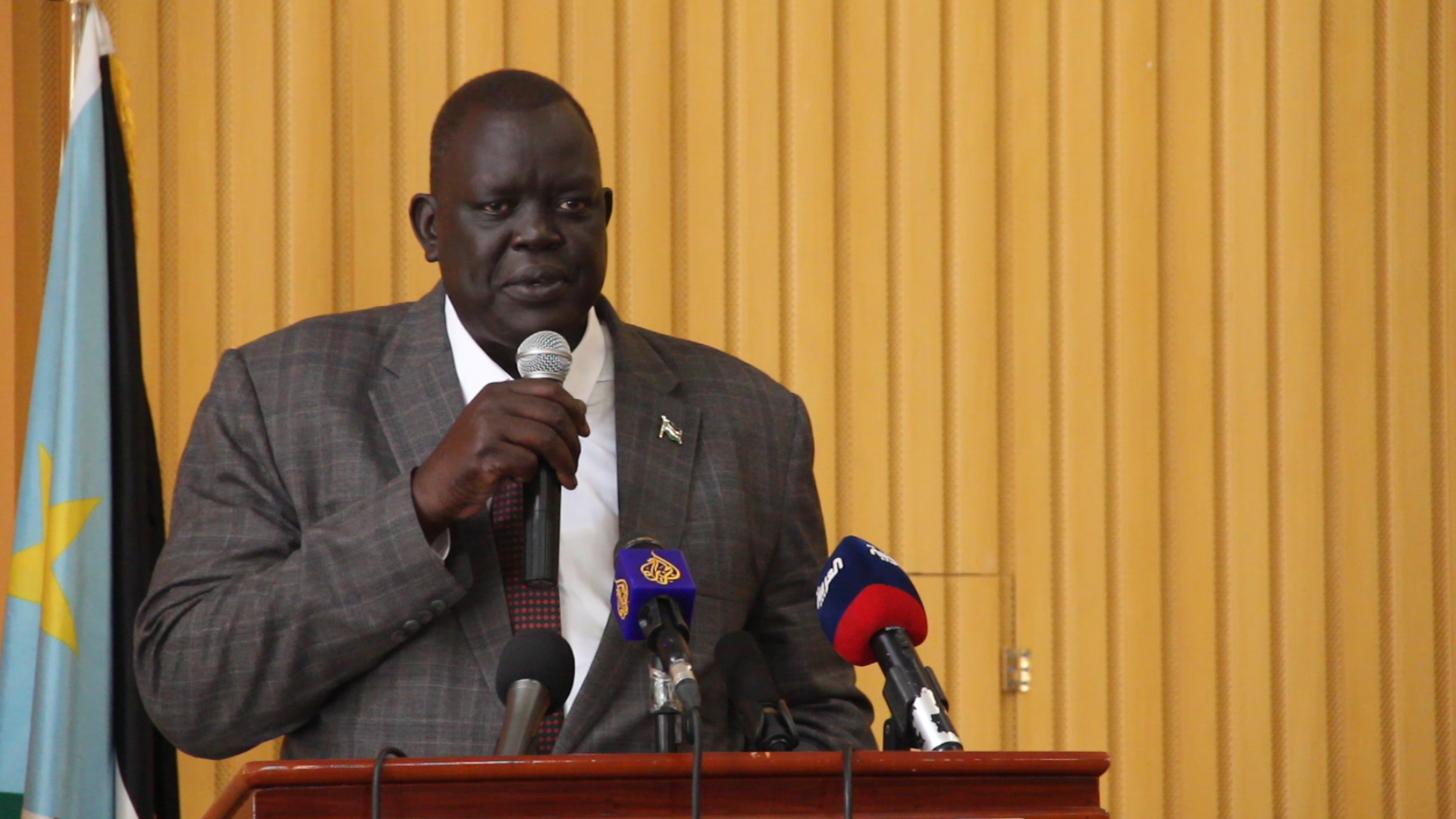
South Sudan Questions Credibility of UN Arms Embargo During Peace

By Awan Achiek, Juba-South Sudan
South Sudan is dismayed at the United Nations Security Council for staying put an arms embargo on the country noting that it’s implementing a peace deal that would not desire such penalties.
In July 2018, the UN Security Council imposed the arms embargo on the country which was still at war, legally obliging all UN member States to prevent the direct or indirect supply, sale or transfer of arms and related material, including ammunition, military vehicles and spare parts.
Sanctions have also been slapped on individuals who were seen as fueling a six-year war pitting the current First Vice President Dr. Riek Machar against President Salva Kiir in a crisis that left about 400,000 people dead, displaced four million others and caused economic chaos.
“We are calling for the lifting of the arm embargo and sanctions against individuals,” Dau Deng Dau, the Deputy Minister of Foreign Affairs told Juba Echo on Tuesday.
“The sanctions were imposed because of the war in the country. Now all the parties are in Juba implementing the agreement and we are convincing the holdout group to join the peace deal.”
This week, Amnesty International warned against lifting the arms embargo saying the country must first meet human rights benchmarks, end crimes against dissent, reform the National Security Service and establish the Hybrid Court provided for in the revitalized peace agreement it is implementing.
Amnesty’s warning comes ahead of a vote at the security council over the arms embargo.
On the warning, “we are disappointed as a country because South Sudan has the responsibility to train and unify forces that will provide security to the people of South Sudan and its borders,” Dau said.
“Definitely, it will have a lot of impact because we will continue to receive holdout groups attacking our positions and we are not allowed to purchase and to get armament so that we can control the security,” Dau said.
Dau said continuous influx of weapons into the country are continuing among rebel ranks fighting the government, including of the National Salvation Front (NAS).
“There are illegal guns that still come to the country through NAS who use it to disturb the country and they are not preventing that to happen,” he said.
































